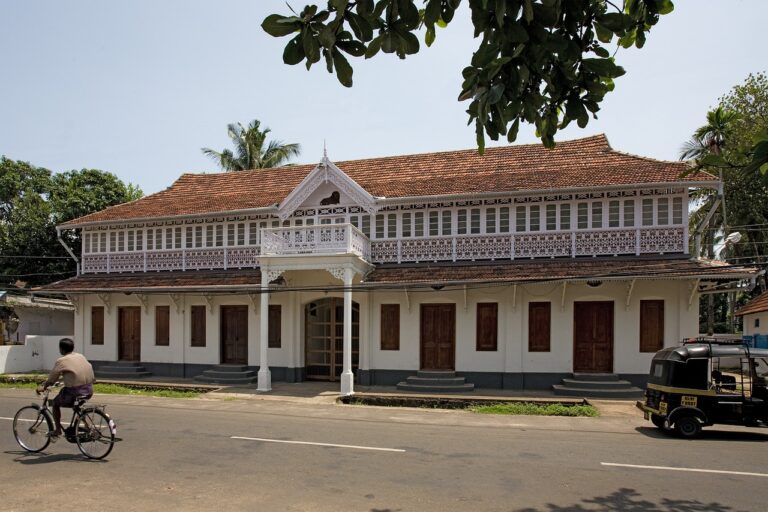The Impact of Social Media Algorithms on Election Campaigns
betbhai9, radhe exchange id, my laser 247.com login:Social media algorithms play a significant role in shaping election campaigns in the modern digital age. With platforms like Facebook, Twitter, and Instagram being major sources of news and information for millions of people worldwide, the algorithms that determine what content users see in their feeds have the power to influence public opinion and ultimately, election outcomes.
The Impact of Social Media Algorithms on Election Campaigns
The Power of Algorithms
Algorithms are the secret sauce that social media platforms use to determine what content users see in their feeds. They analyze user behavior, preferences, and interactions to curate a personalized feed of content that is more likely to engage and resonate with each individual user. This means that the content that users see in their feeds is not necessarily a complete and unbiased representation of all the content that is available on the platform, but rather a selection chosen by the algorithm based on what it thinks will keep users on the platform longer.
How Algorithms Influence Elections
The algorithms used by social media platforms can have a significant impact on election campaigns by controlling the reach and visibility of political content. For example, if a particular post or advertisement is deemed to be engaging and likely to generate clicks, likes, and shares, the algorithm may boost its visibility in users’ feeds, increasing its reach and impact. Conversely, if a piece of content is deemed to be less engaging or controversial, the algorithm may limit its visibility, making it less likely to be seen by users.
This means that political campaigns and candidates need to understand how social media algorithms work and how to optimize their content to maximize its reach and impact. They need to create engaging and shareable content that will resonate with users and prompt them to take action, such as sharing the content with their followers or clicking on a link to learn more.
The Role of Misinformation
One of the biggest concerns surrounding the impact of social media algorithms on election campaigns is the spread of misinformation and fake news. Algorithms are designed to prioritize content that is likely to generate engagement, regardless of its accuracy or legitimacy. This means that false or misleading information can often spread quickly and widely on social media platforms, potentially influencing public opinion and election outcomes.
Platforms like Facebook and Twitter have taken steps to combat the spread of misinformation on their platforms, such as fact-checking content, labeling misinformation, and reducing the visibility of false information in users’ feeds. However, the sheer volume of content being posted on these platforms every day makes it difficult to catch and remove all misinformation, leaving room for false information to spread unchecked.
The Need for Transparency
In light of the significant impact that social media algorithms can have on election campaigns, there is a growing call for transparency and accountability from social media platforms. Users, lawmakers, and advocacy groups are demanding more clarity around how algorithms work, what criteria they use to prioritize content, and how they can be manipulated or exploited for political gain.
Platforms like Facebook and Twitter have started to provide more information about their algorithms and the steps they are taking to address concerns around misinformation and election interference. However, there is still much work to be done to ensure that social media algorithms are transparent, fair, and accountable to the public.
Conclusion
Social media algorithms have a profound impact on election campaigns by shaping the reach and visibility of political content on platforms like Facebook, Twitter, and Instagram. These algorithms can influence public opinion, drive engagement, and ultimately, sway election outcomes. It is crucial for political campaigns, candidates, and social media platforms to understand how algorithms work and to ensure that they are used responsibly and transparently to uphold the integrity of the democratic process.
FAQs
Q: Can social media algorithms be manipulated to influence election outcomes?
A: Yes, social media algorithms can be manipulated to amplify certain types of content and suppress others, potentially influencing public opinion and election outcomes.
Q: How can political campaigns optimize their content for social media algorithms?
A: Political campaigns can optimize their content by creating engaging and shareable posts, using relevant hashtags and keywords, and posting at times when their target audience is most active on the platform.
Q: What steps are social media platforms taking to combat the spread of misinformation during election campaigns?
A: Social media platforms are implementing measures such as fact-checking content, labeling misinformation, and reducing the visibility of false information in users’ feeds to combat the spread of misinformation during election campaigns.
Q: How can users protect themselves from misinformation on social media platforms during election campaigns?
A: Users can protect themselves from misinformation by verifying the source of information, fact-checking questionable claims, and being critical of content that seems too good to be true.







